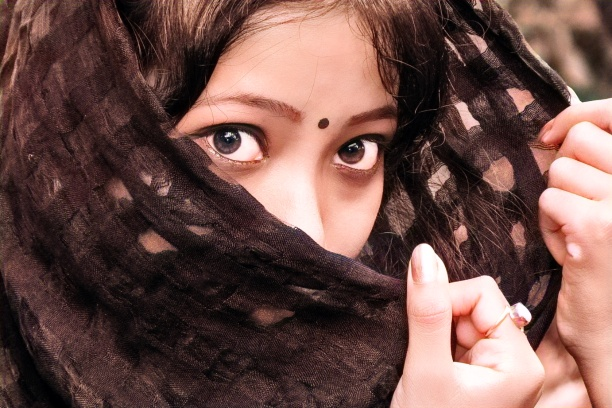Who are we? We are like your mothers, daughters, wives, and sisters. We serve your fathers, sons, husbands, and brothers. You may never hear about us from them; we are their hush-hush paramours.
Some of us are sold and bought like commodities. Some of us are discarded by our parents, like dirty tissues. Some of us are ensnared in the deceitful allure of movies, only to be manipulated and toyed with. The unluckiest among us come to this place on our own, not just to survive, but to consume the agonizing banquet of remorse that clings to our souls.
While we come from distant lands and varying paths, we land up in the same place, in a growing port city. This city, a magnet for the most influential and discontented, witnesses a continuous influx of newcomers, creating an environment ripe for vice. This is where our story begins. Transported to what we now call home, our dwelling is established to cater to these vices.
After a long day at work, men expect to see that their sordid needs are met as soon as they step out. With their tired legs still shaky, they roam the city with a single-minded purpose. A meal and a woman, although we can’t say in which order they prefer to attend to each. In the embrace of our arms, we share moments with them. For a few rupees, we hand them the keys to unlock the doors to their detestable desires – doors that their wives, girlfriends, and lovers keep shut. Once these cravings are satisfied, we are discarded, yet again, like dirty tissues, to our dimly lit rooms, our creaky cots, and our worn-out sheets; left to grapple with the reality of shallow connections.
Every evening, in the soft glow of neon lights, our reflections shimmer in the glass window as we stand, adorned in alluring attires. Our painted lips curve into a practiced smile, inviting those passing by to enter our realm of intimacy.
Five hundred rupees! they offer and haggle with ferocity surpassing that of their wives negotiating vegetable purchases. After heated bargaining, they reluctantly settle on a price that they deem extravagant for encounters with women like us.
As we retreat behind closed doors, our rooms transform into temporary sanctuaries of shared vulnerabilities, where whispered confessions mingle with the scent of passion. As inhibitions are shed along with clothing, men strip away layers of their souls rarely exposed in the unforgiving light of day. In these clandestine encounters, men often find a temporary therapist in us, unburden their souls while partaking in acts deemed deviant by the outer world.
We also become the subject of movies, for which actresses come to us, dissect us, peering into our souls like curious chimpanzees, only to project a glossed-over version of us onto the glimmering silver screen. Once the applause fades and awards adorn their shelves, we become the forgotten fragments of a bygone tale.
As the threads of our existence between our thighs loosen, wrinkles emerge, and heaven forbid, warts and imperfections appear, we are yet again, discarded like a dirty tissue, by our *madams. Madams who live a similarly troubled yet luxurious lives. Madams, who are bigger fishes in the same disgusting pond.
***
That leads to me. Who am I, you ask?
Well, I’m just one of us. At six, my neighbour, who was like a brother to me, promised to take me to this city and educate me, I went off with him. He sold me to a madam for a few thousand rupees and ran away. At sixteen, grappling with AIDS, I stood on the precipice of fading away, another soul yearning to break free from the collective ‘us’.
The question of how to escape this hell-hole loomed large. Sometimes, questions were complicated, and answers were simple. Just then, an opportunity knocked.
I found myself caught in a dance of fate with a wealthy *shet. Recently widowed, he sought solace in the shadows of our alleys. Among the myriad faces he encountered, mine seemed to capture his attention more than others. My uncanny resemblance to his departed wife sparked a connection that neither of us could fully comprehend.
As our first encounter unfolded, he shared the intimate details of his past, unravelling the stories of a love that once filled his days with joy. He showed a picture of his wife, the woman captured in the faded photograph exuded a timeless elegance. A *bindi adorned her forehead, her hair neatly tied into a classic braid, a beautifully embroidered *dupatta draped gracefully over her head, adding a touch of modesty.
Days turned into weeks, and our meetings became more frequent, him seeking solace in the familiar contours of his wife’s doppelgänger.
One fateful night, he arrived with a briefcase filled with cash, intending to make me his own. In his heart, he believed he had found a second chance at love. However, little did he know that envy had taken root among the rest.
The accusing figures closed in on me with hostile glares and pointed fingers. They claimed I had meticulously absorbed every nuance of his wife’s image, transforming myself into a living replica. As if I had taken on the physical and emotional characteristics of the deceased woman, exploiting the shet’s vulnerabilities with calculated precision.
And, they were right. Sometimes, the ends do justify the means, don’t they?
Behind the veil of his desire, I glimpsed the looming spectre of consequences. Yet, I couldn’t afford the luxury of reflection. In the cold calculation of survival, morality often became an elusive luxury.
Today, I stand on the periphery of our home. A bindi adorns my forehead, and hair neatly tied into a classic braid. A beautifully embroidered dupatta drapes gracefully over my head. He arrives in his car, and I leave with him, journeying towards a new life in the outside world, discarding the memories of my past self, like a dirty tissue.
***
Glossary:
Madam: Woman who manages or oversees a house of ill-repute or a brothel.
Shet: Historically, “Sheth” or “Shet” was used as a title for wealthy merchants, bankers, and traders, particularly in Western India.
Dupatta: A long scarf worn by women, typically draped over the head and shoulders.
Bindi: A decorative dot worn on the forehead in South Asian cultures, often with religious or cultural significance.
Doppelgänger: A ghostly double or exact likeness of a person, traditionally considered an omen of bad luck or death. The word comes from German and literally translates to “double-goer.”
Author’s Note:
I got to be real with you, there isn’t much more to say. This was a different experience. I take a lot of pride in dialogues in my stories. Even my favourite story from me at ArtoonsInn (OUATIA) is just dialogues. Recently, a writer friend of mine decided to toss me a curveball and challenged me to go the other way (no dialogues at all), and this story, “Dirty tissues” is a result of that.
This also marks my first attempt at a first-person plural narrative. I believe the characters in this story lent themselves well to this approach, allowing for a collective exploration of their experiences before transitioning into the narrative of an individual.
I hope you enjoyed reading it and look forward to your reviews.
Note: Stories by Event organizers won’t be considered as competing entries for Recognition day.








